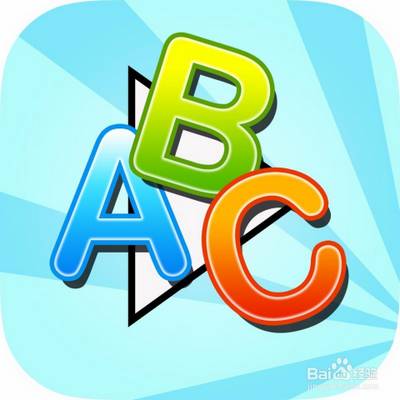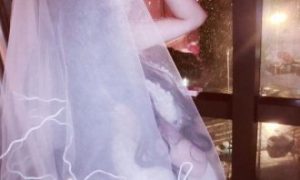1、一般如今时的用法
1)常常性或习气性的动作, 常与暗示频度的时候状语连用。时候状语: every…, sometimes,ofen,always,usually, twice a week, at…, on Sunday
I leave home for school at 7 every morning.He watches Tv once a week .
2)客观真谛,客观存在,科学究竟。
The earth moves around the sun.Shanghai lies in the east of China.
3)暗示格言或警语中。Pride goes before a fall.骄者必败。
注重:此用法若是呈现在宾语从句中,即便主句是曩昔时,从句谓语也要用一般如今时。 例:Columbus proved that the earth is round..
4)如今时刻的状况、能力、性情、个性。
I don’t want so much.Ann Wang writes good English but does not speak well.
比力:Now I put the sugar in the cup.I am doing my homework now.
第一句用一般如今时,用于操作演示或引导阐明的树模性动作,暗示言行的刹时动作。再如: Now watch me, I switch on the current and stand back. 第二句中的 now 是举行时的标记,暗示正在举行的动作的客观状态,所今后句用一般如今时。
组成及变革
一、be 动词的变革
必定句:主语+be(am,is,are)+其它。如:I am a boy.我是一个男孩。否认句:主语+ be + not +其它。如:He is not a worker.他不是工人。
一般疑难句:Be +主语+其它。 如:-Are you a student?-Yes. I am. / No, I’m not.
特别疑难句:疑难词+一般疑难句。如:Where is my bike?
二、举动动词的变革当主语为第一,二人称及复数时,助动词为 do
必定句:主语+动词真相(+其它)。如:We often play basketball after school.
否认句:主语+ don’t+动词真相(+其它)。如:we don’t play basketball after school.
一般疑难句:Do +主语+动词真相+其它?如:Do you often play basketball after school l?
Yes, we do. / No, we don’t.
特别疑难句:疑难词+以 do 开首的一般疑难句?如: What do you often do after school ?
当主语为第三人称单数时 ,助动词为 does
必定句:主语+动词三单式(+其它)。如: He swims well.
否认句:主语+ doesn’’’t+动词真相(+其它)。如:He doesn’t swim well.
一般疑难句:Does +主语+动词真相+其它如:Does he swim well?Yes, he does. / No, he doesn’t.
特别疑难句:疑难词+以 does 开首的一般疑难句? 如: How does your father go to work?
第三人称单数的动词变革法则(只有在第三人称为主语的必定句中,动词才用三单式)
(1)大都动词直接加 s:runs gets likes collets takes plays climbs…….
(2)末端是 s, x, sh, ch, o,前为子音字母,末端加 es :
watches teaches goes does washes crosses mixes brushes
(3)动词末尾y 前为子音:将y 改成i 加es:studystudies flyflies carrycarries crycries
但在 y 前若是为元音则直接加 s:buyssays
02一般曩昔时的用法
1)在肯定的曩昔时候里所产生的动作或存在的状况。
时候状语有:yesterday, an hour ago, the other day, in 1982yesterday morning (afternoon, evening…) last night (week, month, year…), a moment ago , a week ago, three years ago… just now, 等 。 Where did you go just now?
2)暗示在曩昔一段时候内,常常性或习气性的动作。
When I was a child, I often played football in the street.
Whenever the Browns went during their visit, they were given a warm welcome.
3)句型:
It is time for sb. to do sth”到……时候了””该……了” It is time sb. did sth. “时候已迟了””早该……了”
It is time for you to go to bed.你该睡觉了。
It is time you went to bed.你早该睡觉了。would (had) rather sb. did sth.暗示’甘愿或人做某事’ I’d rather you came tomorrow.
4) wish, wonder, think, hope 等用曩昔时,作摸索性的扣问、哀求、建议等。
I thought you might have some. 我觉得你想要一些。
比力:一般曩昔时暗示的动作或状况都已成为曩昔,现已不复存在。
Christine was an invalid all her life. (寄义:她已不在人世。)
Christine has been an invalid all her life. (寄义:她如今还在世)
Mrs. Darby lived in Kentucky for seven years. (寄义:达比太太已再也不住在肯塔基州。)
Mrs. Darby has lived in Kentucky for seven years.
( 寄义:如今还住在肯塔基州,有可能指刚拜别) 注重: 用曩昔时暗示如今,暗示婉转语气。
动词:
1)动词 want, hope, wonder, think, intend 等。
Did you want anything else?
I wondered if you could help me.
2)情态动词 could, would.Could you lend me your bike?
3) used to / be used to
used to + do:”曩昔经常”暗示曩昔习气性的动作或状况,但现在已不存在。Mother used not to be so forgetful.
Scarf used to take a walk.(曩昔经常溜达)
be used to + doing: 对……已感触习气,或”习气于”,to 是介词,后需加名词或动名词。
He is used to a vegetarian diet.
Scarf is used to taking a walk.(如今习气于溜达)
典范例题 _____ Your phone number again? I quite catch it. It’s 69568442.
A. didn’tB. couldn’tC. don’tD. can’t
谜底 A. 本句虽没有明白的时候状语,但从语意上看 出,在听的时辰没有听懂这个动作产生在曩昔,是以利用曩昔时。
组成及变革
1.Be 动词在一般曩昔时中的变革:
am 和 is 在一般曩昔时中变成 was。(was not= wasn’t) are 在一般曩昔时中变成 were。(were not=weren’t)
带有 was 或 were 的句子,其否认、疑难的变革和 is, am, are 同样,即否认句在 was 或 were
后加 not,一般疑难句把 was 或 were 调到句首。
2.举动动词在一般曩昔时中的变革:
必定句 : 主语 + 动词的曩昔式 .I watched a film last Sunday .
否认句 : 主语+ didn’t + 动词真相. I didn’t watch a film last Sunday .
一般疑难句 Did + 主语 + 动词真相 ?Did you watch a film last Sunday ? Yes, I did . No , I didn’t .
特别疑难句:疑难词+ 以 did 开首的一般疑难句 ?What did you do last Sunday ?
03如今举行时
1、意义——当暗示如今正在举行的动作或正在产生的事。 时候标记——now,句前的 look ,listen
2、组成:be (am, is ,are )+动词如今分词-ing 情势
必定句:主语 + be + 如今分词 V-ing (+ 其他)I’m doing my homework now .
否认句:主语+be+not+动词-ing +其他.I’m not doing my homework now.
一般疑难句:Be+主语+动词-ing +其他?
Are you doing your home work now?Yes, I am . No , I’m not .
特别疑难句:特别疑难词+be+主语+动词-ing+其他?What are you doing now ?
3、如今分词的组成:
(1)一般在动词末尾直接加 ing,
(2)以不发音字母 e 末端的动词,先去掉 e,再加 ing,
如 skate skating make making dance dancing write writing have having ride riding come coming
(3)以重读闭音节末端的动词,中心只有一个元音字母,词尾只有一个子音字母,应双写末尾的子音字母,再加 ing, 如: putting running beginning stopping swi妹妹ing shopping jogging sitting getting forgetting letting
4、如今举行时的根基用法:
a.暗示如今( 指措辞人措辞时) 正在产生的事变。We are waiting for you.
b.习气举行:暗示持久的或反复性的动作,措辞时动作未必正在举行。
Mr. Green is writing another novel.(措辞时并未在写,只处于写作的状况。) She is learning piano under Mr. Smith.
c.暗示渐变的动词有:get, grow, become, turn, run, go, begin 等。
The leaves are turning red.It’s getting warmer and warmer.
d.与 always, constantly, forever 等词连用,暗示频频产生的动作或延续存在的状况,常常带有措辞人的主观色采。You are always changing your mind.
典范例题
My dictionary______ , I have looked for it everywhere but still it.
A. has lost, don’t findB. is missing, don’t findC. has lost, haven’t foundD. is missing, haven’t found.
谜底 D. 前句是一个仍在延续的状况,利用举行时,因为没有找到,其影响依然存在,利用完成时,刹时动词用于否认式时可用于完成时。
不消举行时的动词
1)究竟状况的动词
have, belong, possess, cost, owe, exist, include, contain, matter, weigh, measure, continue I have two brothers.
This house belongs to my sister.
2)生理状况的动词
Know, realize, think see, believe, suppose, imagine, agree, recognize, remember, want, need, forget, prefer, mean, understand, love, hate
I need your help.
He loves her very much.
3 ) 刹时动词
accept, receive, complete, finish, give, allow, decide, refuse.
I accept your advice.
4) 系动词
seem, remain, lie, see, hear, smell, feel, taste, get, become, turn You seem a little tired.
04曩昔举行时
曩昔举行时
1)观点:曩昔举行时重要暗示曩昔某一时刻正在举行的动作,或暗示曩昔某一阶段一向在举行的动作
2)曩昔举行时的重要用法是描写一件事产生的布景;一个长动作产生的时辰,另外一个短动作产生。
3)经常使用的时候状语
this morning, the whole morning, all day yesterday, from nine to ten last evening, when, while My brother fell while he was riding his bicycle and hurt himself.
It was raining when they left the station.
When I got to the top of the mountain, the sun was shining.
典范例题
1)Mary a dress when she cut her finger.
A. madeB. is makingC. was makingD. makes
谜底 C. 割伤手指是已产生的事变,利用曩昔时。同时,when 表时候的同时性,”玛丽在做衣服时”供给事变产生的布景,是以用曩昔举行时。
2)As she the newspaper, Granny asleep.
read; was fallingB. was reading; fellC. was reading; was fallingD. read;fell
谜底 B.句中的 as = when, while,意为”当……之时”。描写一件事产生的布景时,用曩昔举行;一个长动作产生的时辰,另外一个短动作产生。句意为 “在她看报纸时,奶奶睡着了。”句中的 fell (fall 的曩昔时),是系动词,后跟形容词,如:fall sick。
1、曩昔举行时布局:
否认句则在 was/were 后加一个 not,疑难句将 was/were 提早则可。如:He was reading a book at 5:00pm yesterday.
He was not reading a book at 5:00 yesterday.
Was he reading a book at 5:00 yesterday?(Yes, he was./ No, he wasn’t.)
What was he doing at 5:00 yesterday?
2、曩昔举行时用法:
1.曩昔举行时重要暗示曩昔某个时刻正在举行的动作,常和暗示曩昔的状语连用。如:
(just)then 当时,那时at this/that time 在这/当时yesterday afternoon 昨全国午
at nine 在九点last night 昨晚(at)this time yesterday 在昨天这个时
候
但在很多环境下,没有暗示时候的状语,这时候必要经由过程上下文来暗示。
①What were you doing at nine last night?昨晚九点的时辰,你在做甚么?
②I was watching TV at home yesterday afternoon.我昨全国午正在家里看电视。
③They were playing football at this time yesterday.昨天这个时辰他们在踢足球。
2.曩昔举行时也能够暗示曩昔某一段时候内正在举行的动作。常与 those days, the whole morning, from 8:00 to 12:00 last night 等时候状语连用。
(1)From 1983 to 1998 , he was teaching at Yale . 从 1983 到 1998 年,他正在耶鲁大学教书。
(2)They were building a bridge. 客岁冬季他们正在造一座桥。
(3)He was writing a book those days. 那几天他正在写一本书
3.曩昔举行时与频度副词 always forever, continually, constantly 等连历时暗示曩昔常常频频的动作,经常带有报怨、腻烦、@赞%5ff87%美或爱%3251Z%好@等情感。
⑴My sister was always forgetting things.(暗示报怨)
⑵He was always helping others. (暗示赞美)
4.曩昔举行时暗示曩昔将要产生的动作。
如今举行时可以暗示未来的动作,一样,曩昔举行时也能够暗示从曩昔某时看来将要产生的动作,经常使用在间接引语中。
①Lucy arrived in Beijing last Friday. But she was leaving for Hong Kong the next morning.
上周五 Lucy 达到北京,但次日清晨就要出发去香港了。
②She asked him if he was coming back for lunch.她问他午餐是不是筹备回来吃。
五、曩昔举行时和一般曩昔时的区分。
(1)曩昔举行时暗示曩昔某时正在举行的动作,而一般曩昔时则暗示一个完成的动作。也就是说用一般曩昔时,只暗示有过这件事;用曩昔举行时,则夸大动作的持续性。
① I wrote a letter this morning.今天上午我写了一封信。(信写完了)
I was writing a letter this morning.今天上午我在写一封信。(信不必定写完)
② The children watched TV yesterday evening.昨天晚上孩子们看了电视。(夸大曩昔产生了这件事)
The children were watching TV yesterday evening.昨晚孩子们都在看电视。(夸大昨晚看电视这一动作的延续性)
(2)暗示曩昔的状况、感受及生理勾当的静态动词(如 be, like, love, hate, fear, own, hear, see, know, want, notice)可用于一般曩昔时,但凡是不消于举行时。如:
I hated it when a man spoke with his mouth full of food. 我腻烦人们措辞时口里含着食品。
(3)一般曩昔时与 always, constantly, forever, continually 等连用,暗示“曩昔常常性、习气性的动作”;而曩昔举行时与 always, constantly, forever, continually 等连用,暗示动作的反复,常带有感淫乱*彩。如:

He always got up at six. 他曩昔老是六点起床。
He was always thinking of his work. 他老是同心专心想到事情。
(4)有时曩昔举行时可以用来更换一般曩昔时,但一般曩昔时暗示主语的举动是颠末当真考 虑的;而曩昔举行时暗示一种较随意或没有举行细心斟酌的举动。如:
I thought that he would agree with us. 我原觉得它会赞成咱们的。
I was thinking of persuading him to follow my advice. 我想到了要说服他接管咱们的建议
6.利用曩昔举行时应注重的几点
(1)动词 hope, wonder 等的曩昔举行时经常使用来暗示提出请求,固然暗示如今的内容, 但语气比一般如今时或一般曩昔时要婉转。如:
I was wondering whether you could come to join us. 我想你可否过来跟咱们一块儿勾当?
7.下面几种环境不消一般曩昔时而要用曩昔举行时:
(1).暗示曩昔某一阶段临时性的习气动作时。如:
Tom was getting up at six o’clock every day that week. 汤姆那一周里天天都是六点钟起床。
(2).与 always 连用暗示歌颂,腻烦等豪情色采时。如:
John was always coming to school late. 约翰上学老是迟到。
Lei Feng was always doing good deeds for the people. 雷锋老是为人民做功德。
(3)用来描述故事产生的情形时。如:
It was a dark night. The wind was blowing hard and the rain was falling heavily. A PLA man suddenly 
appeared on the river bank. He wanted to cross the river.那是一个黑暗的夜晚,风刮得很利害,雨下得很大,一个解放军兵士忽然呈现在河岸上,他想过河去。
(4)when 作并列连词,暗示“(这时候)忽然”之意时,第一个并列分句用曩昔举行时,when 引
导的并列分句用一般曩昔时。如:
I was taking a walk when I met him. 我正在溜达,忽然碰见了他。
We were playing outside when it began to rain. 咱们正在外边玩,这时候下起雨来了。
(5)go, come, leave, start, arrive 等动词可用曩昔举行时暗示曩昔未来的寄义。如:
I was leaving for Wuhan that day. 那天我正要去武汉。
She was coming later. 她随后就来。
8.曩昔举行时暗示委婉语气(只限于 want, hope, wonder 等动词),用以提出哀求。如:
I was wondering if you could help me. I was hoping you could send me home.
3、when, while 的用法
when 和 while 与曩昔举行时有着紧密亲密的瓜葛,他们作隶属连词时都有“当…….时辰”之意, 用法稍有分歧:
when 指导的时候状语从句的谓语动词可所以短暂性动词,也能够是持续性动词,而while 指导的时候状语从句中的谓语动词只能是持续性动词。
when 指导的从句谓语动词若是是短暂性动词则用一般曩昔时,主句是持续性动词则用曩昔举行时,从句动作产生在主句动作的时候段以内(长动感化曩昔举行时,短动感化一般曩昔时);若是主句和从句两个谓语动词都是持续性动词则全数用曩昔举行时,这时候 when 和 while 均可以用。
when 从句的谓语动词可以在主句谓语动作以前、以后或同时产生;while 和 as 从句的谓语动作必需是和主句谓语动作同时产生。
when 和 while 两个词还可以用作并列连词,但意思分歧,when 至关于“在当时”,即是 at that time 或 just then;而 while 则至关于“而;却;可是”;至关于 but,暗示比拟瓜葛。(这一点临时可以不把握)
eg. ⑴ I was playing computer games
my father got home.
=my father got home,I was playing computer games.
(2) Mother was cookingI was doing my homework.
=I was doing my homework, mother was cooking.
曩昔举行时巩固操练:(聪慧的你必定能全数做对)
1.Simon (make) a model plane
2.Peter (do) his homework
3.They (watch) a football match from 7:00 to 9:00 last night.
4.He (try) to draw a plane on the blackboard
5.What book you (read) afternoon?
I (see)you at four yesterday
6.she (watch) TV, her son (play) outside the room.
7.It (begin) to rainwe (work) in the field.
8.I (do) my homework last night
the light (go) out. {go out 意为熄灭}
9.——I saw you in the reading room yesterday , Tom. What were you doing?
——Oh, I (read) some books on science.
10.Girls (dance) 11.— Did you see Tim just now?
boys (sing) at the party.
— Yes. He (fish) by the river.
12.When the teacher (come) into the classroom, the students (laugh)loudly.
05一般未来时
一般未来时
1、意义:暗示未来某个时候要产生的动作或存在的状况,也暗示未来常常或反复产生的动 作。
时候标记:tomorrow , soon ,next Monday ,next year , next weekend , this afternoon , this evening ……
二. 组成及变革:
一般未来时经常使用的两种布局
be going to+动词真相 : 暗示筹算、筹备做的事或行将产生或必定要产生的事。
shall/will+动词真相 : 暗示将要产生的动作或环境,没有太多的规划性, 还用来暗示意愿
⑴ be going to +动词真相
㈠必定句 主语+be(am /,is,/ are) going to +动词真相+其它成分
My sister is going to learn English next year.我姐姐筹备来岁学英语。
㈡否认句 主语+be(am / is / are)not going to +动词真相 +其它成分
I am not going to(go to)the cinema tonight.我今天晚上不筹算去看片子。
㈢一般疑难句Be (am / is / are)+主语+going to+动词原型+其它成分…?
Is your father going to play basketball with you ?你父亲筹算和你去打篮球吗?No , he isn’t.不。
㈣.特别疑难句特别疑难词(Wh-)+一般疑难句 ?
Where are you going to spend Spring Fesital.?春节你筹算在哪过?
㈤.注重: be going to 布局后面习气上不跟 go , come 等表位移的动词,一般用该动词的举行时情势暗示。
如: He’s going to New York next week.下周他要去纽约.
⑵.will /shall +动词真相
(在书面语中,主语是第一人称时,经常使用 shall ,在白话中,所有人称均可以用 will)
1.必定句 主语+will/shall+动词真相+其它成分
(shall) write to him next week.下周我将给他写信。
2.否认句 主语 + will /shall+ not + 动词真相 +其它成分
They won’t watch TV this evening.今天晚上他们不看电视。
3.一般疑难句will/shall+主语 +动词真相+其它成分
Will you stay at home with us tomorrow ?来日诰日你和咱们呆在家里好吗? 4.特别疑难句特别疑难词(Wh-) +一般疑难句
When will your father be back? 你爸爸甚么时侯回来?
3、附 :Shall I /we …经常使用来收罗对方定见,而问对方是不是愿意,或暗示客套的约请,经常使用 Will you…?他们的答复比力机动。
1.Shall we go to the park ?
必定 Sure , let’s go .
否认 No , let’s go to the cinema.
2.Will you please come to my birthday party next week ?
必定 Yes, I will. / Sure .
否认 I’m sorry. I’m afraid I can’t.
4、时候标记:tomorrow , soon ,next Monday ,next year , next weekend , this afternoon , this evening ……
1)shall 用于第一人称,常被 will 所取代。
will 在报告句顶用于大家称,在争求定见时经常使用于第二人称。
Which paragraph shall I read first.
Will you be at home at seven this evening?
2)be going to +不定式,暗示未来。
a.主语的用意,行将做某事。
What are you going to do tomorrow?
b.规划,放置要产生的事。
The play is going to be produced next month。
c.有迹象要产生的事
Look at the dark clouds, there is going to be a storm.
3)be +不定式表未来,按规划或正式放置将产生的事。We are to discuss the report next Saturday.
4)be about to +不定式,意为顿时做某事。He is about to leave for Beijing.
注重:be about to 不克不及与 tomorrow, next week 等暗示明白未来时的时候状语连用。
5) be going to / will
用于前提句时, be going to表未来will表意愿
If you are going to make a journey, you’d better get ready for it as soon as possible.
Now if you will take off your clothes, we will fit the new clothes on you in front of the mirror 6 be to 和 be going to
be to 暗示客观放置或受人批示而做某事。
be going to 暗示主观的筹算或规划。
I am to play football tomorrow afternoon.(客观放置) I’m going to play football tomorrow afternoon. (主观放置)
一般如今时表未来
1)以下动词:come, go, arrive, leave, start, begin, return 的一般如今时表未来。这重要用来暗示在时候上已肯定或放置好的事变。
The train leaves at six tomorrow morning. When does the bus star? It stars in ten minutes.
2)倒装句,暗示动作正在举行,如:
Here comes the bus. = The bus is coming. There goes the bell. = The bell is ringing.
3)在@时%5EVSe%候或前%V6EO8%提@句中。
When Bill comes (不是 will come), ask him to wait for me. I’ll write to you as soon as I arrive there.
4)在动词 hope, take care that, make sure that 等后。
I hope they have a nice time next week.
Make sure that the windows are closed before you leave the room.
用如今举行时暗示未来
意为:”用意”、”筹算”、”放置”、经常使用于人。经常使用词为 come, go, start, arrive, leave, stay 等。
I’m leaving tomorrow.
Are you staying here till next week?
06曩昔未来时
曩昔未来时
1.观点:安身于曩昔某一时刻,从曩昔看未来,经常使用于宾语从句中。
2.时候状语:the next day(morning, year…),the following month(week…),etc. 3.根基布局:was/were/going to + do;would/should + do.
4.否认情势:was/were/not + going to + do;would/should + not + do. 5.一般疑难句:was 或 were 放于句首;would/should 提到句首。
6.例句:He said he would go to Beijing the
(1)曩昔未来时由“助动词 would+动词真相”组成。would 常缩略为‘d。
(2)曩昔未来时的用法
曩昔未来时暗示曩昔的某一时候看来将要产生的动作或存在的状况。曩昔未来时经常使用在宾语 从句中。如:
I didn’t know if she would come。I wasn’t sure whether he would do it。Wang Lei said that she would visit her uncle next Saturday。
曩昔未来时也能够用“was(were) going to +动词真相”来暗示。如:
I didn’t know if she was going to come。Wang Lei said that she was going to visit her uncle next Saterday。
07如今完成时
如今完成时
用法 1:暗示:曩昔产生或已完成的某一动尴尬刁难如今酿成的影响或成果。标记词:already, yet, just, ever, never, before
用法 2:暗示:曩昔已起头,延续到如今的动作或状况。标记词:for, since, since…ago
根基布局:助动词 have/has + 动词的曩昔分词
(当主语是第三人称单数时用 has,其余人称用 have)
1)必定式:主语 + have / has + 曩昔分词
2)否认式:主语 + have / has + not + 曩昔分词
3)一般疑难句: Have / Has + 主语 + 曩昔分词
Yes, 主语 + have/has.(必定)No, 主语 + haven’t/hasn’t.(否认)
4)特别疑难句: 特别疑难词+have/has+主语+曩昔分词
1. 曩昔某时产生的动作到今朝为止这个动作已完成或方才完成。
如:1)I have finished my homework. 我做完家庭功课了。(曩昔某时起头做,到如今已完成) 2)He has already come 他已来了。(曩昔某时起头分开某地到这来,如今已在这。)
2. 暗示动作产生在曩昔并持续到如今。
如:1)I have studied English for six years. 我已学了六年英语了。
(六年前起头学英语,一向学到如今, 也可能继续学也可能就此不学了。)
2)I have lived in Shenyang since 1990. 我从 1990 年就在沈阳住。
(从 1990 年起头住在沈阳一向住到如今,也可能继续住也可能就此为止。)
注重 1) 当暗示一段时候,如今完成时可以用 for 或 since 指导的状语。
比方:I’ve known Li Li for 4 years. 我熟悉丽丽已 4 年了。
I have worked here since 8 years ago. 自从 8 年前我就在这事情。
注重 2) 当在必定报告句中含有already 或just 时,在转换成否认句时,要把句中的 already 或just 去掉,在句末加之 yet.。
比方:I have already seen the filmI haven’t seen the film yet.
He has just come. He hasn’t come yet?
使历时注重事项
1.“have/ has got ” 情势上是一种完成时,但和 have/ has 为统一意思“有”。如:Have you got pen-friends? Yes, I have.
你有笔友吗?是的,我有。
Has he got a lot of work to do? No, he hasn’t.
他有很多事情要做吗?不,他没有。
2.have/has gone to 、have/has been to 和 have/has been in 的区分have/ has gone to 去了,在去某地的路上或在某地,人还未回来have/ has been to 曾去过,人已回来了
have/ has been in 已在,常与一段时候连用
如:He has been to Shenyang before. 他之前曾去过沈阳。He has been in Shenyang for ten years. 他在沈阳 10 年了。Has he gone to Shenyang? 他去沈阳了吗?
3.have/ has been to 常和 once, twice, never, ever 连用;have/ has gone to 则不成。比方:─ Has Tom ever been to Paris? 汤姆去过巴黎吗?
—Yes, he’s been there several times. 是的,他去过好几回了。
—Where have they gone? 他们去哪里了?
—They’ve gone to Shenyang. 他们去沈阳了。
4.非持续性动词不克不及用“如今完成时 + 暗示一段时候的状语”的句型中。
这种动词有:come, go, start, leave, die, buy, finish, join, borrow, stop 等。但它们可以或许用暗示延续状况的响应的持续性动词更换句中的非持续性性动词。
比方: arrive, come be here,be in buy have begin, start be on ; die be deadfinish, end be overgo out be out
join be inborrowkeepfinish/end be over close be closedleave, move be away; fall asleep be asleep
比力曩昔时与如今完成时
1)曩昔时暗示曩昔某时产生的动作或纯真论述曩昔的事变,夸大动作;如今完成时为曩昔 产生的,夸大曩昔的@事%HmE87%变对如%3i542%今@的影响,夸大的是影响。
2)曩昔经常与详细的时候状语连用,而如今完成时凡是与模胡的时候状语连用,或无时候状语。
一般曩昔时的时候状语:
yesterday, last week,…ago, in1980, in October, just now, 详细的时候状语配合的时候状语:
this morning, tonight,this April, now, once,before, already, recently,lately
如今完成时的时候状语
for, since, so far, ever, never, just, yet,till / until, up to now, in past years, always,
不肯定的时候状语
3)如今完成时可暗示延续到如今的动作或状况,动词通常为持续性的,如 live, teach, learn, work, study, know.
曩昔时经常使用的非延续性动词有 come, go, leave, start, die, finish, become, get married 等。举例:
I saw this film yesterday.
(夸大看的动作产生过了。)
I have seen this film.
(@夸%ie45R%大对如%3i542%今@的影响,片子的内容已晓得了。)
Why did you get up so early?
(夸大起床的动作已产生过了。)
Who hasn’t handed in his paper?
(夸大有卷子,可能为不公允竞争。)
She has returned from Paris.
她已从巴黎回来了。
She returned yesterday.
她是昨天回来了。
He has been in the League for three years. (在团内的状况可持续)
He has been a League member for three years. (是团员的状况可延续)
He joined the League three years ago.
( 三年前入团,joined 为短暂举动。) I have finished my homework now.
—Will somebody go and get Dr. White?
—He’s already been sent for.
句子中若有曩昔时的时候副词(如 yesterday, last, week, in 1960)时,不克不及利用如今完成时, 要用曩昔时。
(错)Tom has written a letter to his parents last night.
(对)Tom wrote a letter to his parents last night.
用于如今完成时的句型
1)It is the first / second time…. that…布局中的从句部门,用如今完成时。It is the first time that I have visited the city.
It was the third time that the boy had been late.
2)This is the… that…布局,that 从句要用如今完成时.
This is the best film that I’ve (ever) seen.
这是我看过的最佳的片子。
This is the first time (that) I’ve heard him sing.这是我第一次听他唱歌。典范例题
(1)—Do you know our town at all?
—No, this is the first time I here.
A. wasB. have beenC. cameD. am coming
谜底 B. This is the first time 后面所加从句应为如今完成时,故选 B。
(2)—Have you been to our town before?
—No, it’s the first time I here.
A. even, comeB. even, have comeC. ever, comeD. ever, have come
谜底 D. ever 意为@曾或不%51y61%管@什么时候,反意词为 never,此两词经常使用于完成时。 This is the largest fish I have ever seen. It is / was the first time +that-clause 的句型中,从句要用完成时。注重:非持续性动词的否认情势可以与暗示持续时候的状语连用。即动作不产生的状况
是可以延续的。
(错)I have received his letter for a month.
(对)I haven’t received his letter for almost a month.
08曩昔完成时
曩昔完成时
1.观点:以曩昔某个时候为尺度,在此之前产生的动作或举动,或在曩昔某动作以前完成的行 为,即“曩昔的曩昔”。
2.时候状语:before, by the end of last year(term, month…),etc. 3.根基布局:had + done.
4.否认情势:had + not + done. 5.一般疑难句:had 放于句首。
6.例句:As soon as we got to the station, the train had left. By the end of last month. We had reviewed four books
2)用法
a.在 told, said, knew, heard, thought 等动词后的宾语从句。
She said (that) she had never been to Paris.
b.状语从句
在曩昔分歧时候产生的两个动作中,产生在先,用曩昔完成时;产生在后,用一般曩昔时。
When the police arrived, the thieves had run away.
c.暗示意向的动词,如 hope, wish, expect, think, intend, mean, suppose 等,用曩昔完成时暗示”本来…,未能…”
We had hoped that you would come, but you didn’t.
3)曩昔完成时的时候状语 before, by, until , when, after, once, as soon as。He said that he had learned some English before.
By the time he was twelve, Edison had began to make a living by himself.
Tom was disappointed that most of the guests had left when he arrived at the party.
典范例题
The students busily when Miss Brown went to get a book she in the office.
A. had written, leftB,were writing, has left C. had written, had leftD. were writing, had left 谜底 D. “把书忘在办公室”产生在”去取书”这一曩昔的动作以前,是以”忘了书”这一动作产生在曩昔的曩昔,用曩昔完成时。句中 when 暗示的是时候的一点,暗示在”同窗们正忙于…… “这一布景下,when 所指导的动作产生。是以
前一句利用曩昔举行时。
注重:had no … when还没等…… 就……
had no sooner… than刚…… 就……
He had no sooner bought the car than he sold it.
其他关于动词时态的常识点
1. 用一般曩昔时取代完成时
1)两个动作如按次序产生,又不夸大前后,或用 then,and,but 等连词时,多用一般曩昔时。
When she saw the mouse,she screamed. My aunt gave me a hat and I lost it.
2 ) 两个动作接踵产生,可用一般曩昔时;如第一个动作必要若干时候完成,用曩昔完成时。
When I heard the news, I was very excited.
3)论述汗青究竟,可不消曩昔完成时,而只用一般曩昔时。
Our teacher told us that Columbus discovered America in 1492.
2. 一般如今时取代未来时
时候状语从句,前提句中,从句用一般如今时取代未来时
When, while, before, after, till, once, as soon as, so long as, by the time, if, in case (that), unless, even if, whether, the moment, the minute, the day, the year, i妹妹ediately
He is going to visit her aunt the day he arrives in Beijing. 他一到北京,就去看他阿姨。
典范例题
(1)He said he me a present unless I in doing the experiment.
A. had not given; had not succeededB. would not give; succeed
C. will not give; succeedD. would not give; will succeed.
谜底 B. 在时候,@前%V6EO8%提或妥%1GKTT%协@主语从句中一般不消未来时。本题有 He said,故为曩昔式。主句用未来时,故选 B. 此处用一般曩昔式取代了曩昔未来时。
(2) 暗示如今已放置好的将来事项,行程等勾当。
The museum opens at ten tomorrow.博物馆来日诰日 10 点开门。(现实上天天如斯。)
3. 一般如今时取代曩昔时
1 )”书上说”,”报纸上说”等。
The newspaper says that it’s going to be cold tomorrow.
报纸上阐明天会很冷的。
2) 论述旧事,使其活泼。
Napoleon’s army now advances and the great battle begins.
4. 一般如今时取代完成时
1)有些动词用一般如今时取代完成时:
hear, tell, learn, write , understand, forget, know, find , say,remember.
I hear (= have heard) he will go to London. I forget (=have forgotten) how old he is.
2)句型 ” It is … since…”取代”It has been … since …”
3)It is (= has been) five years since we last met.
5. 一般如今时取代举行时
句型:Here comes… ; There goes…
Look, here comes Mr. Li.
6. 如今举行时取代未来时
1)暗示行将产生的或预定中规划好的勾当。
Are you staying with us this weekend? 这周和咱们一块儿度周末吗?
We are leaving soon.咱们顿时就走。
2)渐变更词,如:get, run, grow, become, begin 及 die。He is dying.
7.时态一致
1)若是从句所论述的为@真%UqK6y%谛或稳%q3A16%定@的究竟,则永久用如今时。
At that time, people did not know that the earth moves. He told me last week that he is eighteen.
2)宾语从句中的助动词 ought, need, must, dare 时态是稳定的。
He thought that I need not tell you the truth.
8.时态与时候状语
时候状语
一般如今时every …, sometimes,at …, on Sunday,
一般曩昔时yesterday, last week, an hour ago, the other day, in 1982, just now
一般未来时next…, tomorrow, in+时候,
如今完成时for, since, so far, ever, never, just, yet, till/until, up to now, in past years, always, recently
曩昔完成时before, by, until, when, after, once, as soon as
曩昔举行时this morning, the whole morning, all day, yesterday, from nine to ten last evening… when, while
未来举行时soon, tomorrow, this evening, on Sunday, by this time, tomorrow, in two days, tomorrow evening
动词时态巩固操练 50 题
( )1. There no hospitals in my hometown fifty years ago.
A.isB. areC. wasD. were
( )2. — Who sings best in your class?— Jenny .
A. doB. didC. doesD. has done
( )3. — the young girl the old man clean his room every day?— Yes, she does.
A. Does; helpB. Has; helpedC. Did; helpD. Do; helps
( )4. — Can I go to Beijing for my holiday, Dad?— You can when you a bit older.
A. will getB. getC. are gettingD. got
( )5. — What does Linda often do in the evening?
— She often her homework, but on the evening of March 12 she TV.
A. does; watchesB. is doing; watchedC. does; watchedD. is doing; was watching
( )6. Our geography teacher told us yesterday that the earth around the sun.
A. was movingB. movedC. has movedD. moves
( )7. If he harder, he will catch up with us soon.
A. studyB. studiesC. will studyD. studied
( )8. — Don’t forget to ask him to write to me.
— I won’t. As soon as he , I’ll ask him to write to you.
A. will comeB. cameC. comesD. is coming
( )9. — Do you like this silk dress? — Yes, I do. It so soft and comfortable.
A. is feelingB. feelsC. has feltD. is felt
( )10. Oh, it’s you. I’m sorry I know you here.
A. don’t; areB. didn’t; areC. didn’t; wereD. don’t; were
( )11. Mr Lu Xun died in 1936. He a lot of famous novels.
A. wroteB. was writingC. has writtenD. would write
( )12. — Your telephone number again? I quite catch it.— It’s 2567321.
A. can’tB. couldn’tC. don’tD. didn’t
( )13. — How was your weekend on the farm?— Great! We with the farmers.
A. enjoy ourselvesB. went fishingC. will workD. make friends
( )14. — What did Mr Jones do before he moved here?
— Hea city bus for over twenty-five years.
A. is drivingB. droveC. has drivenD. drives
( )15. Janea new dress every month when she was in Shanghai.
A. buysB. is buyingC. boughtD. will buy
( )16. — Liu Mei can’t come tonight.— Why? But she me she would come.
A. tellsB. toldC. is toldD. had told
( )17. He turned off the light and then .
A. leavesB. has leftC. will leaveD. left
( )18. — Keep quiet, please. They a meeting. — Sorry.
A. haveB. hadC. are havingD. have had
( )19. — Ji妹妹y is leaving for a holiday. — Really? Where he ?
A. has; goneB. will; goC. did; goD. would; go
( )20. Frank to see his grandma if he free tomorrow.
A. will come; will beB. comes; isC. will come; isD. comes; will be
( )21. There a talk on science in our school next Monday.
A. will giveB. will beC. is going to giveD. is
( )22. — Shall we go shopping now?
— Sorry, I can’t. I my shirts.
A. washB. washesC. washedD. am washing
( )23. Hurry up! We’re all waiting for you. I for an important phone call. Go without me.
A. waitB. was waitingC. am waitingD. waited
( )24. — Did you see Tom at the party? — No, he by the time I got there.
A. had leftB. was leavingC. leftD. has left
( )25. — Is this raincoat yours?— No, mine there behind the door.
A. has hungB. is hangingC. hungD. will hang
( )26. — you TV at the moment? — No, you can turn it off.
A. Did; watchB. Are; watchingC. Do; watchD. Have; watched
( )27. I don’t think Jim saw me; he a book at that moment.
A. just readB. has just readC. was just readingD. had just read
( )28. Mr Smith finished it.
a book about China last year but I don’t know whether he has
A. has writtenB. wroteC. had writtenD. was writing
( )29. — I called you at seven yesterday evening, but there was no answer.
— Oh, I am sorry. Idinner at my friend’s home.
A. am havingB. hadC. was havingD. have had
( )30. — Do you know Miss Wang?
— Yes. I first met her two years ago. She at a radio shop at that time.
A. was workingB. has workedC. is workingD. had worked
( )31. Mr White the newspaper, while his daughter TV.
A. read; was watchingB. was reading; watchedC. was reading; was watching D. read; watched
( )32. — I you at the meeting. Why?— Iwas ill.
A. sawB. have seenC. not seeD. didn’t see
( )33. When the teacher came in, the students about the new film.
A. are talkingB. were talkingC. talkedD. talks
( )34. The 2004 Athens Olympic Games on August 13.
A. has begunB. lastedC. beganD. has lasted
( )35. Hurry up! The play for ten minutes.
A. has been onB. has begunC. had begunD. began
( )36. — May I speak to Mr Smith?— Sorry, he Australia. But he in two days.
A. has been to; will come backB. has gone to; will be back
C. has been in; would come backD. is leaving for; doesn’t come back
( )37. I can’t go to see the film tonight, because I my ticket.
A. have lostB. lostC. will loseD. was losing
( )38. — What do you think of the film Harry Potter?
— It is very nice. I it twice.
A. will seeB. have seenC. sawD. see
( )39. We to learn English five years ago. We it for five years up to now.
A. began; learnedB. begin; have learnedC. have begun; had learnedD. began; have learned
( )40. — What a nice bike! How long you it?— Just two weeks.
A. have; boughtB. did; buyC. have; hadD. are; having
( )41. You don’t have to describe her. I her several times.
A. had metB. have metC. metD. meet
( )42. — I’m sorry to have kept you waiting.— Oh, not at all. I here only a few minutes.
A. have comeB. had beenC. wasD. have been
( )43. — my dictionary anywhere?— Yes. I saw it on your desk a moment ago.
A. Have you seenB. Do you seeC. Had you seenD. Would you see
( )44. — I haven’t heard from Li Jun for a long time.— What do you think to him?
A. was happeningB. to happenC. has happenedD. had happened
( )45. — Do you know our town at all?— No, this is the first time I here.
A. wasB. have beenC. cameD. am coming
( )46. We were all surprised when he made it clear that he office soon.
A. leavesB. would leaveC. will leaveD. had left
( )47. — How long your father the Party? — For more than twenty years.
A. has; joinedB. did; joinC. has; been inD. does; join
( )48. Mrs Smith her keys in the office so she had to wait until her husband
home.
A. has left; comesB. left; had comeC. had left; would comeD. had left; came
( )49. Do you know Betty very well? Yes, she and I friends since we met in Guangzhou last su妹妹er.
A. have madeB. have becomeC. have beenD. have turned
( )50. What did your son say in the letter?He told me that he the Disney World the next day.
A. would visitB. has visitC. is going to visitD. will visit
参考谜底:
1-5 DCABC6-10 DBCBC11-15 ADBBC16-20 BDCBC
21-25 BDCAB26-30 BCDCA31-35 CDBCA36-40 BABDC
41-45 BDACB46-50 BCDCA








